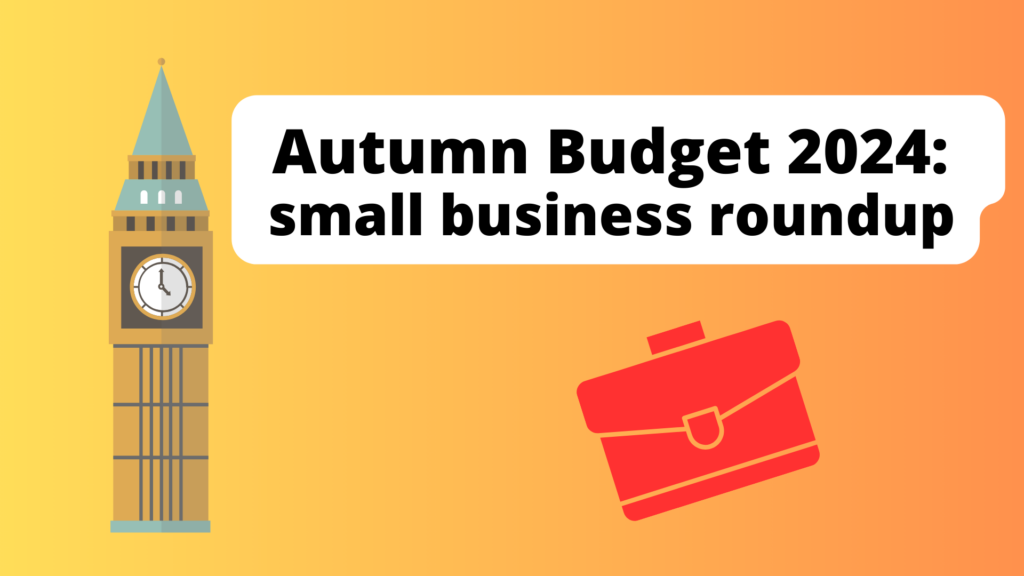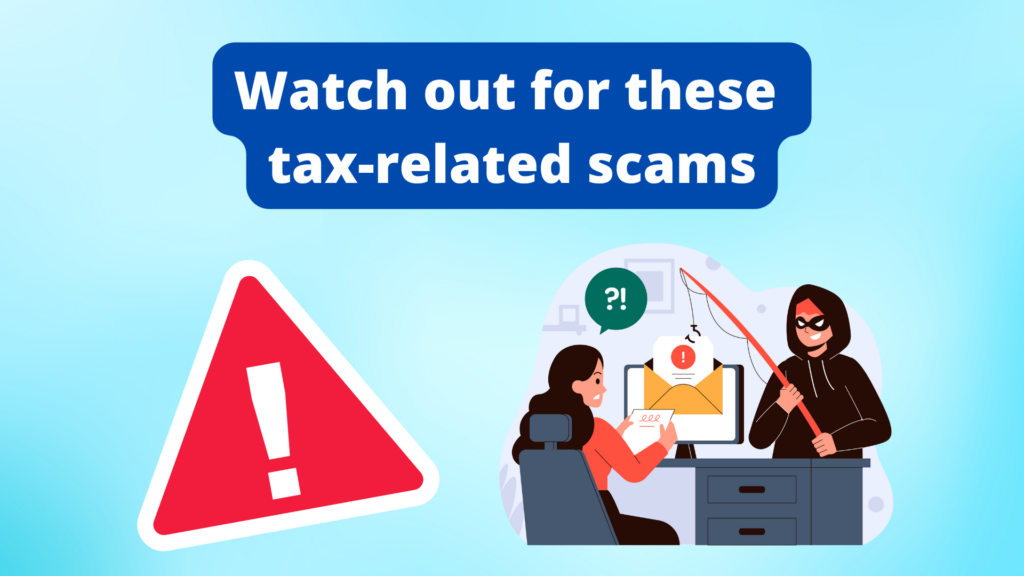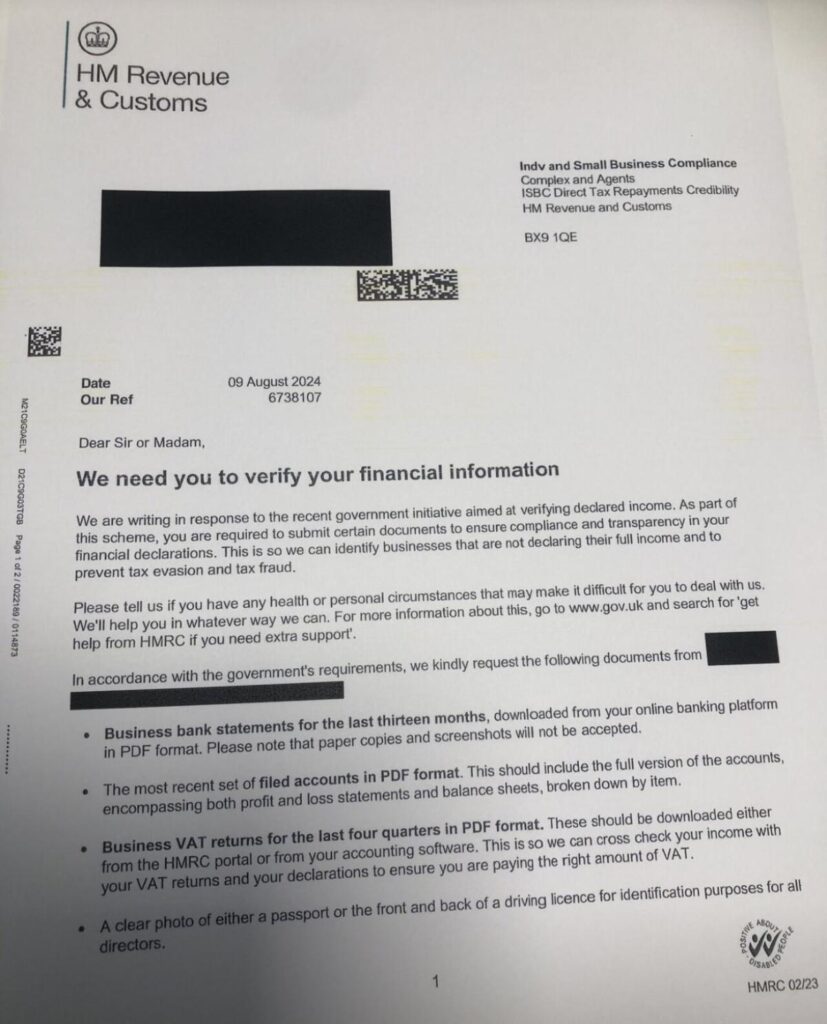On Wednesday October 30 the Chancellor Rachel Reeves presented Labour’s first Autumn budget in 14 years.
She confirmed her priorities as putting ‘more pounds in people’s pockets’, improve living standards and restore economic stability. Overall, the budget measures will raise an additional £40 billion in tax.
Below, we explore key elements from the Budget that will affect small businesses and individuals.

National insurance increase
Employees will not pay more national insurance directly, but from April 2025 employers’ national insurance contributions will increase by 1.2 percentage points to 15%. The NI threshold reduces from £9,100 to £5,000.
Recognising the potential impact of this on Britain’s smallest businesses, Ms Reeves is increasing Employment Allowance from £5,000 to £10,500. The chancellor says this means 865,000 employers won’t pay any National Insurance at all next year, and over one million will pay the same or less as they did previously.
Minimum wage increase
Reeves confirms that the ‘national living wage’ – the legal minimum for over 21s – will increase by 6.7% to £12.21. This equates to £1,400 a year for an eligible full-time worker.
A single adult rate will be phased in over time, to eventually equalise pay for under 21s.
No rise to income tax
Income tax will not increase, and the ongoing freeze in income tax thresholds will end in 2028. This will reduce the flow of taxpayers moving into higher tax brackets as salaries increase with inflation.
Business rates
Businesses will receive 40% relief on business rates for retail and hospitality up to a cap of £25,000.
Capital gains and inheritance tax
Capital gains tax will increase, with the lower rate moving from 10% to 18%, and the higher rate from 20% to 24%.
The government is extending the freeze on the threshold for inheritance tax, allowing £325,000 to be inherited tax free; £500,000 where property is involved and £1m by passing allowances on to a spouse.
£2bn in tax will be raised by reforming reliefs for business and agricultural assets. Beyond £1m, such assets will attract inheritance tax at 20%.
State pension spending to increase
Labour will make sure that “the people who powered our country receive the pension they are owed”, and remains commitment to the triple lock. Spending on the state pension is projected to rise 4.1% in 2025-26, equating to a £470 increase for over 12 million pensioners in the UK.
Fuel Duty
The chancellor rejected the option to increase fuel duty, and is maintaining the 5p cut from the previous government.
Electric Vehicles
To continue to support the take-up of electric vehicles, existing incentives will be retained in company car tax from 2028. The government will also increase the differential between fully electric and other vehicles in the first rates of Vehicle Excise Duty, as of April 2025.
Stamp Duty
Reeves announces the government will increase stamp duty land surcharge for second homes by 2% to 5% from 31 October 2024. There are no changes to the duty rates for First Time Buyers or people moving home.
Other measures
The additional tax will be raised in a variety of ways, with further announcements including:
- A new levy on vape liquid, which will be increased in line with tobacco.
- A cut in draught duty by 1.7%, which equates a penny off a pint in the pub.
- The non-dom tax regime will disappear from the tax system from April 2025, impacting UK residents whose permanent home for tax purposes is outside the UK. According to the Office for Budget Responsibility, this package of measures will raise £12.7bn over the next five years.
- Private school fees will now be liable for VAT, and private schools will lose business rates relief from April 2025.
- Air passenger duty is to increase, at a level of an additional £2 on an economy short haul flight. But the duty for private jet passengers will increase by 50% to around £450 per person.
Inflation and growth forecasts
The chancellor will maintain the Bank of England’s 2% target for inflation.
Inflation will average 2.5% in 2024, rising to 2.6% in 2025 and dropping to 2% in 2029. Inflation was at 1.7% in September, below the Bank of England’s 2% target, down from 11% in October 2022.
The Office for Budget Responsibility slightly upgrades its growth forecast for this year but adjusts them down in later years. GDP growth is forecast to be 1.1% in 2024 and 1.6% in 2030.
Want to explore in more detail what the latest rules will mean for you or your business? As leading small business accountants in the Lune Valley we’re happy to advise. Get in touch with us today.



